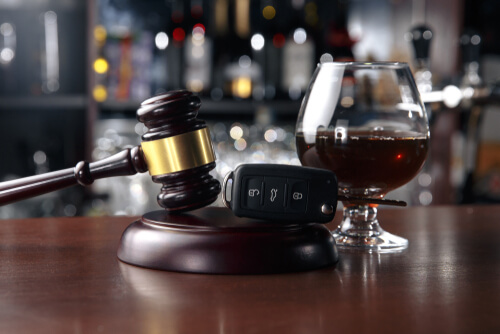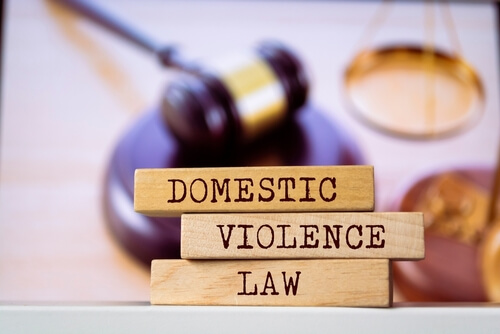Recent Blog Posts
When a Medical Issue Makes You Look Drunk
 Police officers do not drive around with quality lab equipment for accurate roadside B.A.C. testing in the trunks of their cars. This means that most DUI arrests are based on an officer’s subjective perception of a person’s intoxication. The same is true for other arrests and probable-cause searches related to alcohol, such as public intoxication and minor-in-possession issues. However, many people have medical, mental health, or cognitive conditions that can make them appear to be drunk when they are not. If you are accused of an alcohol-related offense because a police officer mistook symptoms of your medical condition for intoxication, you need a skilled San Jose, CA criminal defense attorney.
Police officers do not drive around with quality lab equipment for accurate roadside B.A.C. testing in the trunks of their cars. This means that most DUI arrests are based on an officer’s subjective perception of a person’s intoxication. The same is true for other arrests and probable-cause searches related to alcohol, such as public intoxication and minor-in-possession issues. However, many people have medical, mental health, or cognitive conditions that can make them appear to be drunk when they are not. If you are accused of an alcohol-related offense because a police officer mistook symptoms of your medical condition for intoxication, you need a skilled San Jose, CA criminal defense attorney.
Physical Health Issues That Can Look Like Intoxication
Medical conditions that can cause a police officer to think a person is intoxicated include:
What to Do After a Slip and Fall Accident
 While many slip-and-fall incidents are not serious, some are. While anyone can be seriously hurt after slipping and falling, some people are more likely to sustain major injuries than others. People who are more likely to sustain serious bodily injuries from falling include the elderly, people of larger size, pregnant people, and those with certain medical conditions such as existing back injuries or osteoporosis. Many slip and falls are caused by a retail store or restaurant’s negligence. Failing to clean up a spill or post signage immediately upon finding out about the spill or failing to appropriately monitor the premises can put customers at risk. If you slip and fall in a business, you should contact a San Jose, CA personal injury lawyer immediately.
While many slip-and-fall incidents are not serious, some are. While anyone can be seriously hurt after slipping and falling, some people are more likely to sustain major injuries than others. People who are more likely to sustain serious bodily injuries from falling include the elderly, people of larger size, pregnant people, and those with certain medical conditions such as existing back injuries or osteoporosis. Many slip and falls are caused by a retail store or restaurant’s negligence. Failing to clean up a spill or post signage immediately upon finding out about the spill or failing to appropriately monitor the premises can put customers at risk. If you slip and fall in a business, you should contact a San Jose, CA personal injury lawyer immediately.
Follow These Steps Right After Slipping and Falling
The steps you should take right after a slip-and-fall accident include:
When Mental Illness Leads to Criminal Charges in California
 People who struggle with severe mental illnesses may be unable to control their behavior when they are in an emotionally escalated state. It sometimes happens that a concerned loved one will call 911 in an effort to get help for someone who is having a psychotic break or threatening suicide, only for the mentally ill person to get arrested instead. Fortunately, in California, Laura’s Law provides an opportunity for people who engage in criminal behavior as a direct result of their serious mental illness to get help instead of jail time. A San Jose, CA criminal defense attorney can work to get you into a mental health diversion program.
People who struggle with severe mental illnesses may be unable to control their behavior when they are in an emotionally escalated state. It sometimes happens that a concerned loved one will call 911 in an effort to get help for someone who is having a psychotic break or threatening suicide, only for the mentally ill person to get arrested instead. Fortunately, in California, Laura’s Law provides an opportunity for people who engage in criminal behavior as a direct result of their serious mental illness to get help instead of jail time. A San Jose, CA criminal defense attorney can work to get you into a mental health diversion program.
Do I Qualify for Treatment in Lieu of Punishment Under Laura’s Law?
If you qualify for a mental health diversion program, you will be required to commit to and regularly attend an assisted outpatient treatment program. These programs are designed to rapidly stabilize individuals who are suffering from serious mental illnesses. You may be relieved of your charges and sent to treatment if you are an adult and meet these qualifications:
The Most Common Criminal Charges Women in San Jose Face
 While men make up a large majority of the prison and jail population, the gender gap is beginning to close. Women are more likely to be arrested today than they were even 15 years ago. The crimes women are accused of are slightly different than the crimes men are most commonly accused of. For example, men are more than six times as likely to commit homicide than women are. Some types of crimes are more evenly divided between male and female offenders. Women are more likely than men to commit other crimes, such as prostitution, although the justice system sometimes fails to distinguish between victims of human trafficking and women who are voluntarily engaged in illegal sex work. If you are a woman facing criminal charges, it is important to be represented by a skilled San Jose, CA, criminal defense lawyer.
While men make up a large majority of the prison and jail population, the gender gap is beginning to close. Women are more likely to be arrested today than they were even 15 years ago. The crimes women are accused of are slightly different than the crimes men are most commonly accused of. For example, men are more than six times as likely to commit homicide than women are. Some types of crimes are more evenly divided between male and female offenders. Women are more likely than men to commit other crimes, such as prostitution, although the justice system sometimes fails to distinguish between victims of human trafficking and women who are voluntarily engaged in illegal sex work. If you are a woman facing criminal charges, it is important to be represented by a skilled San Jose, CA, criminal defense lawyer.
What to Do After a Dog Bite in California
 Dog bites can happen very unexpectedly. You may have been walking a familiar route or spending time in your own front yard when you suddenly encountered an aggressive loose dog. Or, a dog you reasonably believed was friendly and playing may have abruptly bitten you or your child without warning. Dog bites can cause serious harm, either through direct injury from the bite or through an infection you do not notice until days later. It is important to seek urgent medical care for any dog bite that breaks the skin or leads to significant swelling and bruising. California dog owners are generally strictly liable when their dog bites. Even if you think the dog is well cared for and unlikely to be carrying disease or that the bite is not very serious, you should get a doctor to address the bite right away. Next, you should contact a Gilroy, CA, dog bite lawyer even if you are not sure you want to file a lawsuit right away.
Dog bites can happen very unexpectedly. You may have been walking a familiar route or spending time in your own front yard when you suddenly encountered an aggressive loose dog. Or, a dog you reasonably believed was friendly and playing may have abruptly bitten you or your child without warning. Dog bites can cause serious harm, either through direct injury from the bite or through an infection you do not notice until days later. It is important to seek urgent medical care for any dog bite that breaks the skin or leads to significant swelling and bruising. California dog owners are generally strictly liable when their dog bites. Even if you think the dog is well cared for and unlikely to be carrying disease or that the bite is not very serious, you should get a doctor to address the bite right away. Next, you should contact a Gilroy, CA, dog bite lawyer even if you are not sure you want to file a lawsuit right away.
Can I Get Arrested for Being High?
 In most states, people can only be arrested for drug crimes if they are caught in possession of a controlled substance. California is not like most states in that regard. You do not need to actually have a controlled substance in your possession to get in trouble for drug activity. Simply being found under the influence of an illicit substance is enough to get you arrested and charged with a misdemeanor drug offense. This law is designed to address the social issues that can come with a large number of visibly inebriated people in public spaces. While many drug users can function fairly normally while high, many others create public disturbances or pose a danger to the public. This law enables the police to arrest anyone they encounter who seems to be under the influence of an illegal substance, such as heroin or methamphetamine. If you are charged with being under the influence, a San Jose, CA, criminal defense attorney can help.
In most states, people can only be arrested for drug crimes if they are caught in possession of a controlled substance. California is not like most states in that regard. You do not need to actually have a controlled substance in your possession to get in trouble for drug activity. Simply being found under the influence of an illicit substance is enough to get you arrested and charged with a misdemeanor drug offense. This law is designed to address the social issues that can come with a large number of visibly inebriated people in public spaces. While many drug users can function fairly normally while high, many others create public disturbances or pose a danger to the public. This law enables the police to arrest anyone they encounter who seems to be under the influence of an illegal substance, such as heroin or methamphetamine. If you are charged with being under the influence, a San Jose, CA, criminal defense attorney can help.
What to do if Your Child is Hit by a Car
 Sadly, children are often at higher risk of being hit by a car than adults. Children who like to play outside often ride their bikes or play ball in the street. Delivery drivers in particular often pose a risk to children, as they are likely focused on finding the correct address and may not be paying attention to their surroundings.
Sadly, children are often at higher risk of being hit by a car than adults. Children who like to play outside often ride their bikes or play ball in the street. Delivery drivers in particular often pose a risk to children, as they are likely focused on finding the correct address and may not be paying attention to their surroundings.
Although the city of San Jose takes care to address pedestrian safety issues, some drivers fail to follow important laws giving pedestrians who are crossing the street at an intersection right of way. School zones can be a particularly dangerous area, despite safety measures. Parents may be in a hurry to drop off their own children and get to work, failing to look out for other children who are walking to school. Non-school traffic may become frustrated with the slow pace and make risky maneuvers. If your child has been hit by a vehicle, it is very important to call 911 immediately, and then contact a San Jose, CA, pedestrian accidents attorney as soon as you can.
Moving Forward After a Felony
 There are some cases where no matter how skilled your attorney is, a felony conviction is inevitable. Felonies, like burglary and distribution of a controlled substance, are considered substantially more serious than misdemeanors like a simple DUI. The role of your San Jose, CA, criminal defense lawyer in these cases is to provide you with the best defense possible under the circumstances while seeking to minimize any consequences you may face. \
There are some cases where no matter how skilled your attorney is, a felony conviction is inevitable. Felonies, like burglary and distribution of a controlled substance, are considered substantially more serious than misdemeanors like a simple DUI. The role of your San Jose, CA, criminal defense lawyer in these cases is to provide you with the best defense possible under the circumstances while seeking to minimize any consequences you may face. \
If you are almost certain to be convicted or plead guilty, it is best to start preparing for life after a felony. While it is true that life can be more difficult for felons, moving on and living a great life is entirely possible. You may face unique challenges, like finding a place to live after you are released from prison, or finding a good job that does not require a clean background check. There are steps you can begin taking now to prepare you for success and happiness after a conviction.
Drunk Driving Accidents and the Holidays

It is fairly easy to correctly conclude that there is an elevated risk of encountering a drunk driver during the holiday season. People are having parties where the alcohol flows freely. Others may be drinking more to cope with the stress of dealing with family. While it is easy to understand why people tend to drink during the holidays, it is much harder to understand why the drunk driver who just hit you thought they could drive in their condition. Everyone knows that it is illegal to drive while under the influence of alcohol - or marijuana, or opioid pain medication, or any other intoxicant, legal or otherwise. Yet, the statistics year after year suggest that quite a few people do it anyway, putting everyone around them in danger and causing an unusual number of car accidents. If you were recently injured by a drunk driver, you may be entitled to substantial compensation. A Palo Alto, CA, car accident lawyer can help you understand your rights and pursue the funds you are owed.
Help for Women Accused of Domestic Violence

Over the last ten years or so, it has become far more common for women to get arrested for domestic violence when the police are called to a dispute. While this is a very good thing for genuine male survivors of intimate partner violence, there is a distinct problem. Many of the women who are accused of domestic assault against a male partner were defending themselves. While there are women who perpetuate violence against men, women are far more likely to be the victim of domestic violence than the offender. When the police arrive, they have no real way of knowing what transpired before they got there. Unless the entire incident was captured on a security camera - which abusers rarely allow in their homes - the police have to guess who was the dominant aggressor. If you have been accused of domestic violence, it is important to contact a Fremont, CA, criminal defense lawyer.






